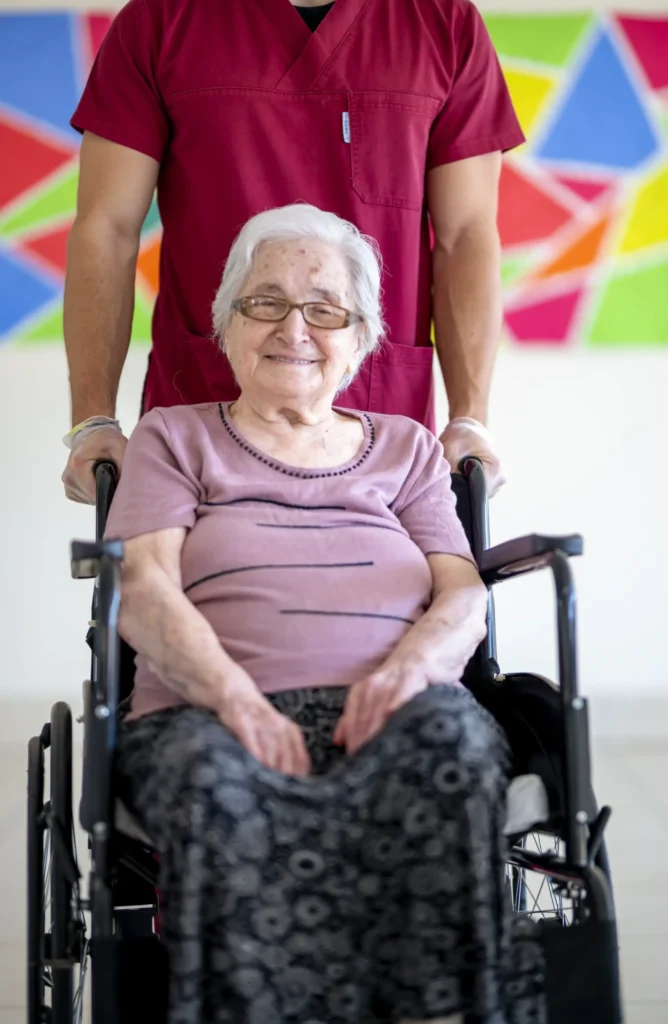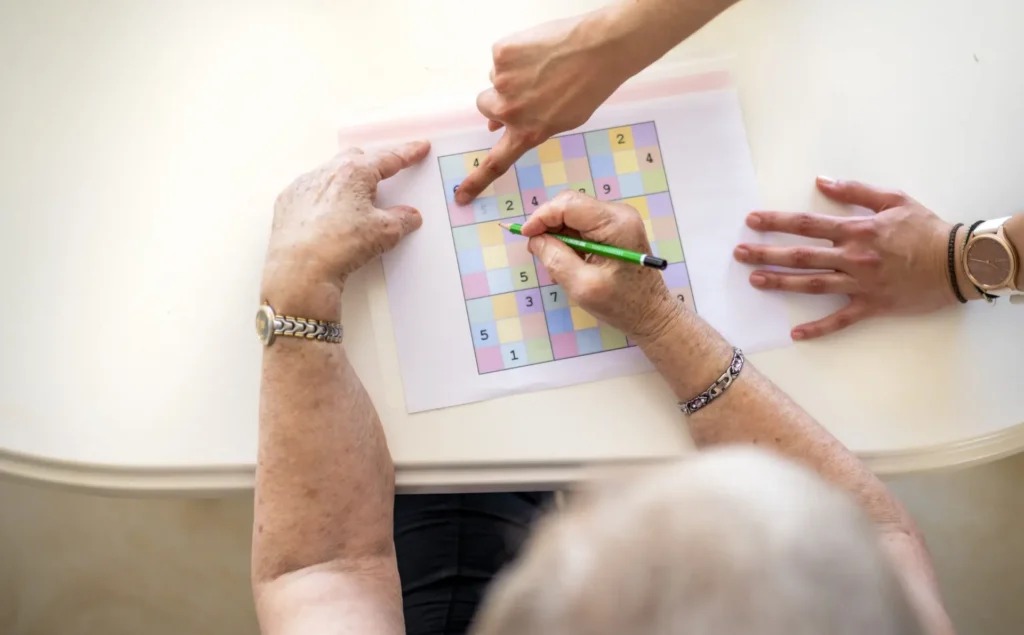

Residence of patients with dementia & Alzheimer’s disease in a safe and supportive environment, provided by specially trained personnel
Dementia refers to a pathological condition characterised primarily by progressive memory loss, disturbances in orientation, concentration, and attention, as well as changes in personality, mood, and behaviour.
These symptoms gradually lead to the loss of the patient’s autonomy (such as dressing, personal hygiene, financial transactions, medication management) and result in a decline in the quality of life not only for the individual but also for their caregivers, who often bear a heavy emotional (frustration, helplessness, sadness, anger, guilt), physical, and financial burden.
Although Alzheimer’s disease accounts for approximately two-thirds of all dementia cases, there are other medical conditions that can lead to dementia, such as vascular disease, Parkinson’s disease, and traumatic brain injury.
Dementias as a whole can be classified into two major categories: reversible dementias (e.g., those caused by hypothyroidism) and irreversible dementias (e.g., Alzheimer’s disease, vascular dementia).
In terms of management, it is important to emphasise that treatment depends on the underlying cause. Therefore, upon admission of the patient to the Clinic, it is essential first to investigate the underlying cause and then to proceed with the appropriate therapeutic intervention.
These symptoms gradually lead to the loss of the patient’s autonomy (such as dressing, personal hygiene, financial transactions, medication management) and result in a decline in the quality of life not only for the individual but also for their caregivers, who often bear a heavy emotional (frustration, helplessness, sadness, anger, guilt), physical, and financial burden.
Although Alzheimer’s disease accounts for approximately two-thirds of all dementia cases, there are other medical conditions that can lead to dementia, such as vascular disease, Parkinson’s disease, and traumatic brain injury.
Dementias as a whole can be classified into two major categories: reversible dementias (e.g., those caused by hypothyroidism) and irreversible dementias (e.g., Alzheimer’s disease, vascular dementia).
In terms of management, it is important to emphasise that treatment depends on the underlying cause. Therefore, upon admission of the patient to the Clinic, it is essential first to investigate the underlying cause and then to proceed with the appropriate therapeutic intervention.
Therapeutic Approach to Dementia
Upon admission to the Clinic, it is essential to allow patients sufficient time to adjust to their new environment. Sudden changes in surroundings may initially cause distress and heighten anxiety.
Over time, however, adaptation is greatly facilitated by staying in a warm and welcoming environment with abundant natural light, consistent orientation cues (such as clocks, calendars, television, radio), and a structured daily routine. This includes fixed times for rest, meals, personal hygiene, and participation in psychotherapeutic group activities with a variety of programmes.
For irreversible forms of dementia, which represent the majority of cases, there is unfortunately no definitive cure at present. The therapeutic focus lies in slowing disease progression and managing behavioural disturbances and psychotic symptoms.
Upon admission to the Clinic, it is essential to allow patients sufficient time to adjust to their new environment. Sudden changes in surroundings may initially cause distress and heighten anxiety.
Over time, however, adaptation is greatly facilitated by staying in a warm and welcoming environment with abundant natural light, consistent orientation cues (such as clocks, calendars, television, radio), and a structured daily routine. This includes fixed times for rest, meals, personal hygiene, and participation in psychotherapeutic group activities with a variety of programmes.
For irreversible forms of dementia, which represent the majority of cases, there is unfortunately no definitive cure at present. The therapeutic focus lies in slowing disease progression and managing behavioural disturbances and psychotic symptoms.
Pharmacological Management of Dementia
The primary medications recommended for dementia are anti-dementia agents, as well as certain antipsychotic drugs, which are mainly prescribed to address behavioural symptoms (such as psychomotor agitation, irritability, verbal or physical aggression), hallucinations, and delusional thoughts.
In all cases, when administering medication to elderly patients, the principle “start low, go slow” applies — that is, starting with low doses and increasing gradually, as higher doses may produce adverse effects.
Non-Pharmacological Interventions
(tailored to the patient’s level of functioning)
- a) Cognitive stimulation through game-like exercises.
b) Speech and language therapy, aimed at maintaining the patient’s ability to communicate with their surroundings at the best possible level.
c) Occupational therapy, designed to preserve skills and encourage engagement in daily activities (e.g., knitting, embroidery, crafts, painting).
Being cared for in a protected environment, supported by specially trained personnel, aims to help the patient experience this challenging stage of life with dignity, while also relieving caregivers of the significant burden they carry.
At the Agia Irini Psychiatric Clinic in Drama,
we embrace and care for patients with dementia,
with the utmost respect for their rights and individual needs.
At the Agia Irini Psychiatric Clinic in Drama,
we embrace and care for patients with dementia,
with the utmost respect for their rights and individual needs.
